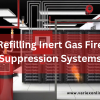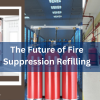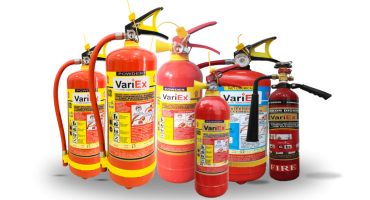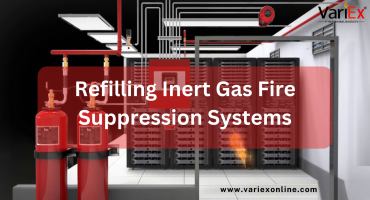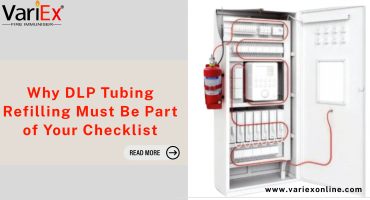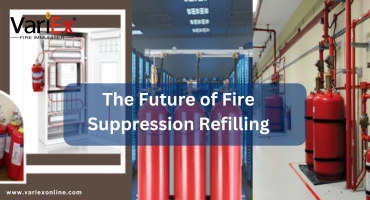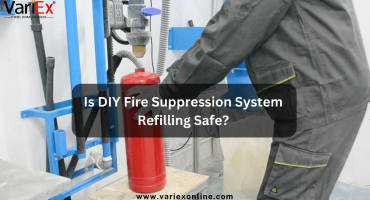![]()
Fire Immuniser
+91-7829629111
Email: info@variex.in
Varistor Technologies Pvt. Ltd.
Block-1, First Floor, Ardente Office One, Hoodi Circle, ITPL Main Road, Bengaluru, Karnataka 560048, IN
Which Type Of Pump Is Used In Fire Fighting System
Fire fighting systems rely on pumps to provide the necessary water pressure for extinguishing fires effectively. The type of pump used depends on various factors, including the system design, water source, and application requirements. Here's an overview of the common types of pumps used in fire fighting systems.
Centrifugal Pumps:
- In fire fighting systems, people most commonly use centrifugal pumps.
- They work by converting rotational energy from an impeller into kinetic energy to increase the water pressure.
- Centrifugal pumps are available in various configurations, including end-suction, horizontal split-case, and vertical turbine pumps.
- They suit applications requiring high flow rates and moderate to high pressures, such as fire hydrant systems and sprinkler systems.
Vertical Turbine Pumps:
- People commonly use vertical turbine pumps in fire protection systems, especially in high-rise buildings and industrial facilities.
- These pumps feature a vertical shaft and multiple impellers stacked on top of each other.
- Engineers design them to deliver high-pressure water from deep wells or water reservoirs to fire hydrants or sprinkler systems.
Positive Displacement Pumps:
- Positive displacement pumps operate by trapping and displacing a fixed volume of fluid with each pump stroke.
- Types of positive displacement pumps used in fire fighting systems include piston pumps, diaphragm pumps, and rotary pumps.
- These pumps suit applications where precise flow control and constant pressure are required, like foam proportioning systems and high-pressure water mist systems.
Horizontal Split-Case Pumps:
- In fire protection systems, people use horizontal split-case pumps where high flow rates and pressures are needed.
- These pumps feature a horizontally split casing, allowing easy access to the internal components for maintenance and repair.
- Industrial fire water supply systems and large-scale fire protection systems often use horizontal split-case pumps.
Diesel Engine-Driven Pumps:
- In fire fighting systems, people commonly use diesel engine-driven pumps as backup or secondary pumps.
- Diesel engines power these pumps, ensuring reliable operation during power failures or when electricity is unavailable.
- People often install them in remote locations or where redundancy ensures continuous fire protection.
When selecting a pump for a fire fighting system, it's essential to consider factors such as flow rate, pressure requirements, reliability, maintenance needs, and compliance with industry standards and regulations. Consulting with a qualified fire protection engineer or pump specialist can help in choosing the most suitable pump for your specific application and ensuring the effectiveness of your fire protection system.
Frequently Asked Questions
1.What type of pump is commonly used in fire fighting systems?
Due to their ability to deliver high flow rates and moderate to high pressures efficiently, fire fighting systems commonly use centrifugal pumps.
2. What are the advantages of centrifugal pumps in fire fighting systems?
Centrifugal pumps are reliable, cost-effective, and easy to maintain. They can handle varying flow rates and pressures, making them suitable for a wide range of fire protection applications.
3. Where are vertical turbine pumps commonly used in fire fighting systems?
Fire protection systems commonly use vertical turbine pumps in high-rise buildings, industrial facilities, and areas requiring water to be lifted from deep wells or reservoirs to fire hydrants or sprinkler systems.
4. What are positive displacement pumps used for in fire fighting systems?
Fire fighting systems use positive displacement pumps where precise flow control and constant pressure are necessary, such as in foam proportioning systems and high-pressure water mist systems.
5. What is the role of diesel engine-driven pumps in fire fighting systems?
Diesel engine-driven pumps serve as backup or secondary pumps in fire fighting systems, providing reliable operation during power outages or when electricity is not available.
6. How do I select the right pump for my fire fighting system?
When selecting a pump for a fire fighting system, consider factors such as flow rate, pressure requirements, reliability, maintenance needs, and compliance with industry standards and regulations. Consulting with a qualified fire protection engineer or pump specialist can help ensure the best choice for your specific application.
7. What maintenance is required for fire fighting system pumps?
Regular maintenance, including inspection, testing, and servicing, is essential to ensure the reliability and effectiveness of fire fighting system pumps. Tasks may include checking for leaks, lubricating moving parts, and testing pump performance under simulated fire conditions.
8. Are fire fighting system pumps subject to any regulations or standards?
Yes, fire fighting system pumps must comply with relevant industry standards and regulations, such as NFPA 20 (Standard for the Installation of Stationary Pumps for Fire Protection) and local building codes. It's important to ensure that pumps meet these requirements to ensure the effectiveness and safety of fire protection systems.
Final Say
We at VariEx.in or Variexonline.com have mastered the art of designing, installing, inspecting, and fixing automatic sprinkler systems with the help of our in-house team, which is capable of delivering the fire sprinkler services you need, whether large or small and at affordable cost.
To schedule a fire sprinkler installation, or you think our services could benefit your commercial property, contact us online or give us a call at, 7829629111



